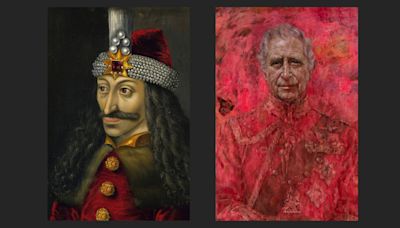Search results
abebooks.com
- He became king in 1625 and soon after married Henrietta Maria. He came into conflict with his first Parliament because of religious issues, his war against Spain, and the general distrust of his adviser the 1st duke of Buckingham. After dissolving several successive Parliaments, Charles ruled his kingdom for 11 years without calling a Parliament.
www.britannica.com › summary › Charles-I-king-of-Great-Britain-and-Ireland
People also ask
Why was Charles I a king?
Who was Charles I?
Why was Charles I executed?
Why was Charles II a good king?
2 days ago · Charles I (born November 19, 1600, Dunfermline Palace, Fife, Scotland—died January 30, 1649, London, England) was the king of Great Britain and Ireland (1625–49), whose authoritarian rule and quarrels with Parliament provoked a civil war that led to his execution.
May 12, 2021 · What was Charles I of England known for? Charles I of England is known as the king who fought Parliament during the English Civil War. He lost the war and was executed. Why did Charles I lose his head? Charles I of England was beheaded after he lost the English Civil War and was tried and found guilty of treason by Parliament.
- Mark Cartwright
- Why did King Charles I of England struggle with ParliamentKing Charles I of England and Parliament disagreed over how to raise finances, religious reforms in the Anglican Church, and the powers of the mona...
- Who was king of England after Charles I?The next king of England after Charles I was his son Charles II following the Restoration of the monarchy in 1660.
Learn about the events that led up to the beheading of a monarch. Charles I succeeded his father James I in 1625 as King of England and Scotland. During Charles’ reign, his actions frustrated his Parliament and resulted in the wars of the English Civil War, eventually leading to his execution in 1649. Charles married the Catholic Henrietta ...
Aug 12, 2021 · What was Charles I like as king? How did his actions contribute to Civil War? And why was he executed? Leanda de Lisle answers key questions on the Stuart monarch, who was brutally deposed and later charged as a public enemy…
- Leanda de Lisle
Feb 17, 2011 · Charles's preference for a world in which power was confined to the king, was not shared by his subjects The masques offer valuable evidence of how Charles thought political power operated.
Feb 17, 2011 · Introduction. Common wisdom has it that the execution of Charles I on 30 January 1649 was a desperate, aberrant act by a small and reluctant minority of English parliamentarians - opposed by the...



